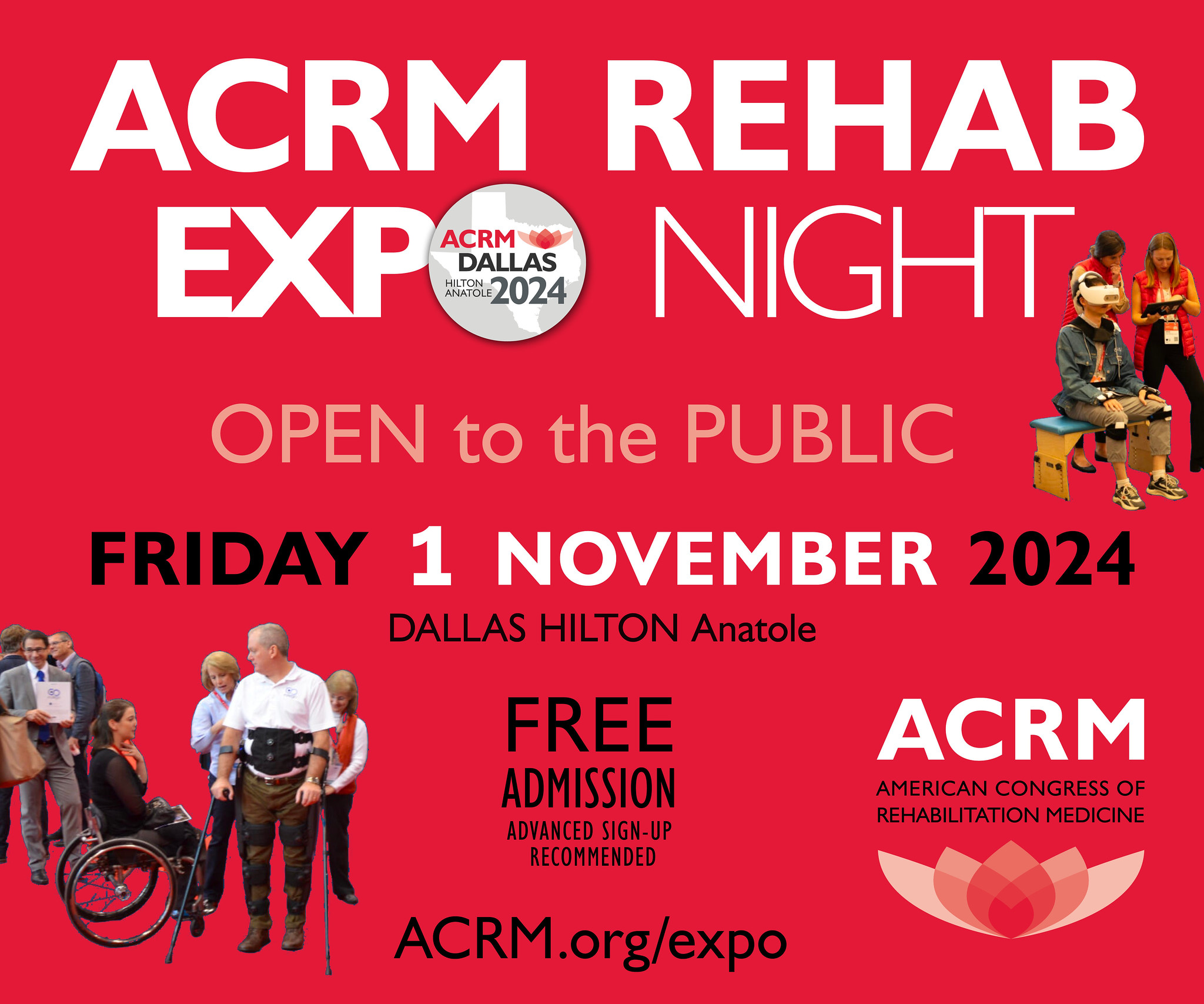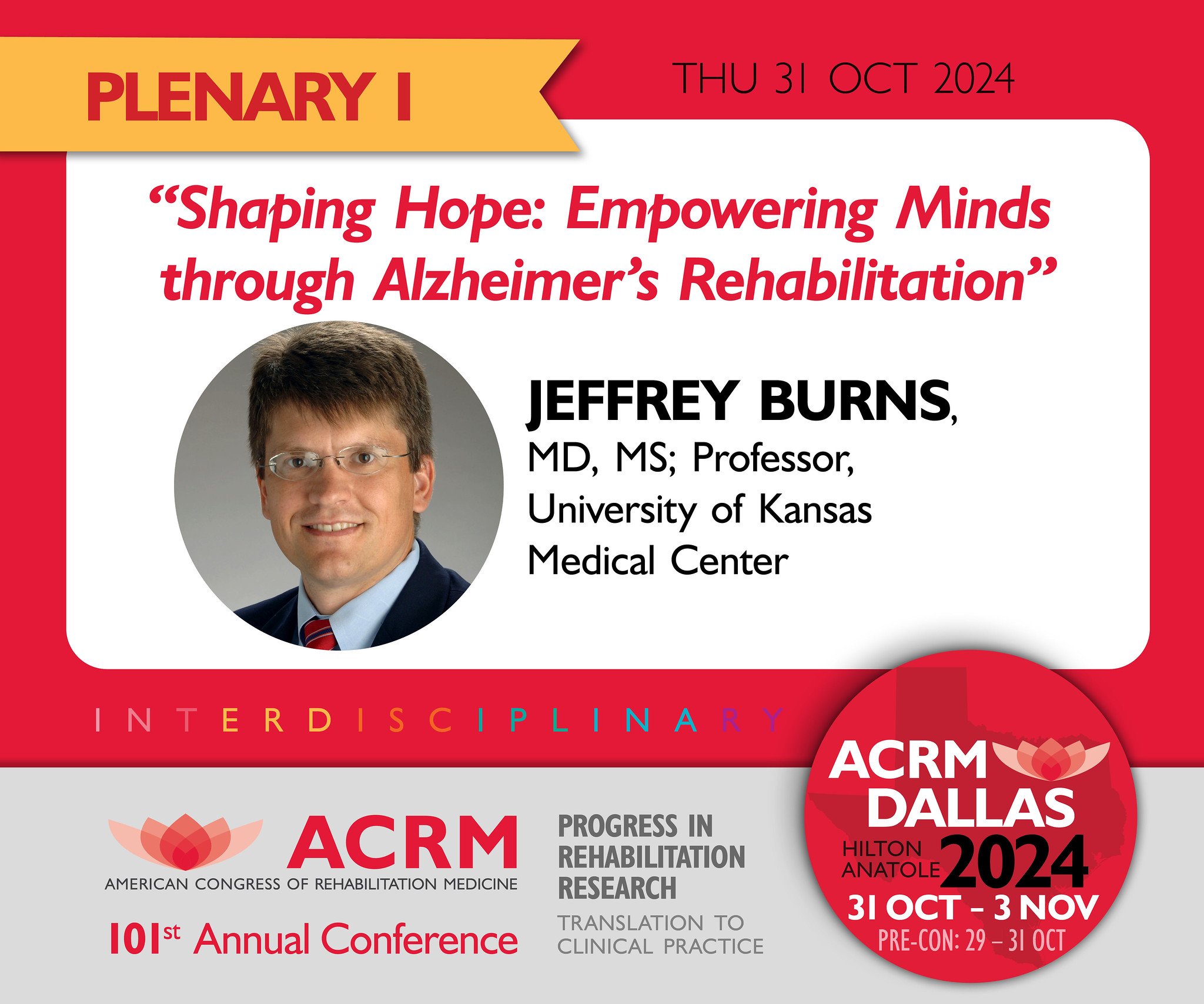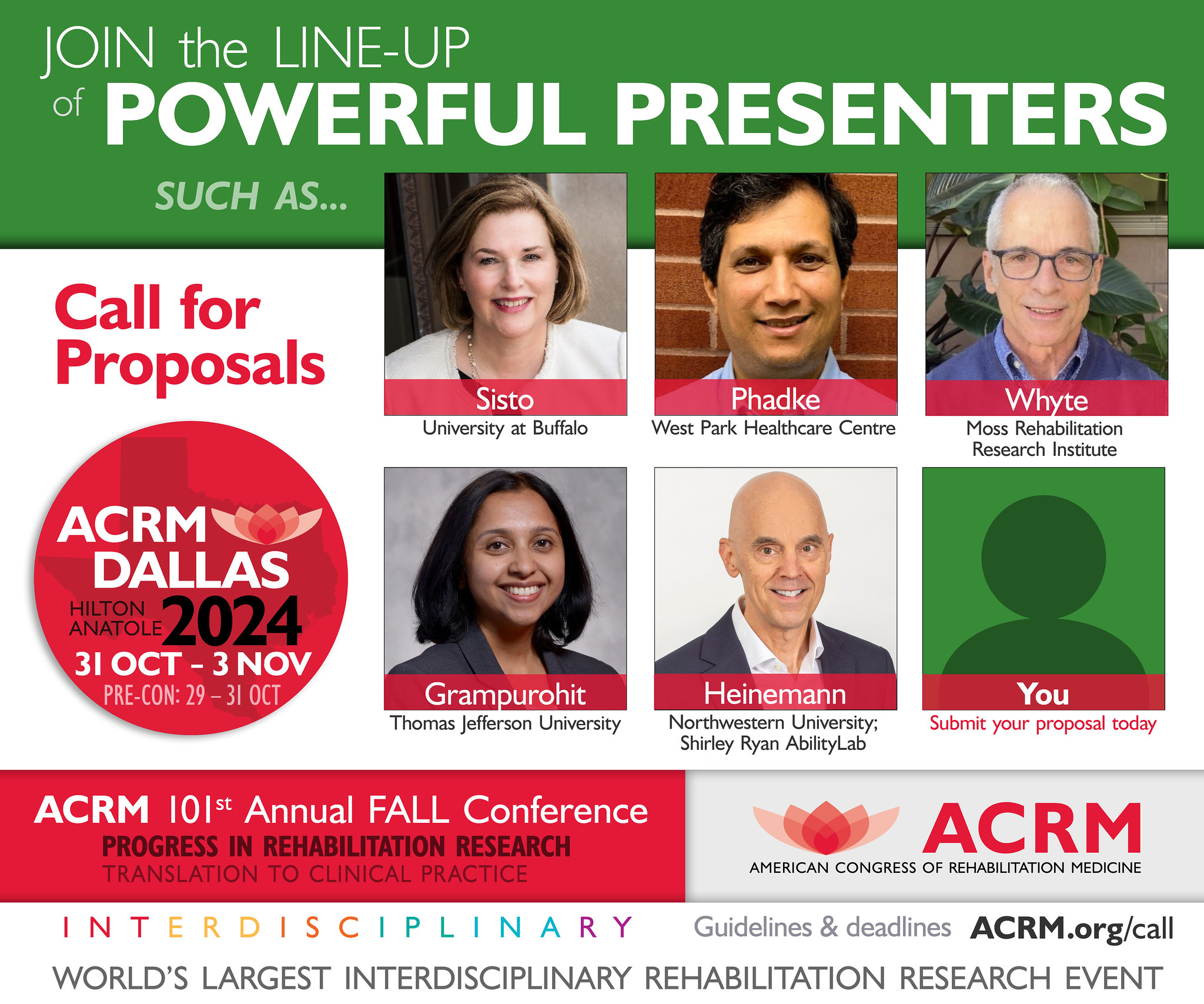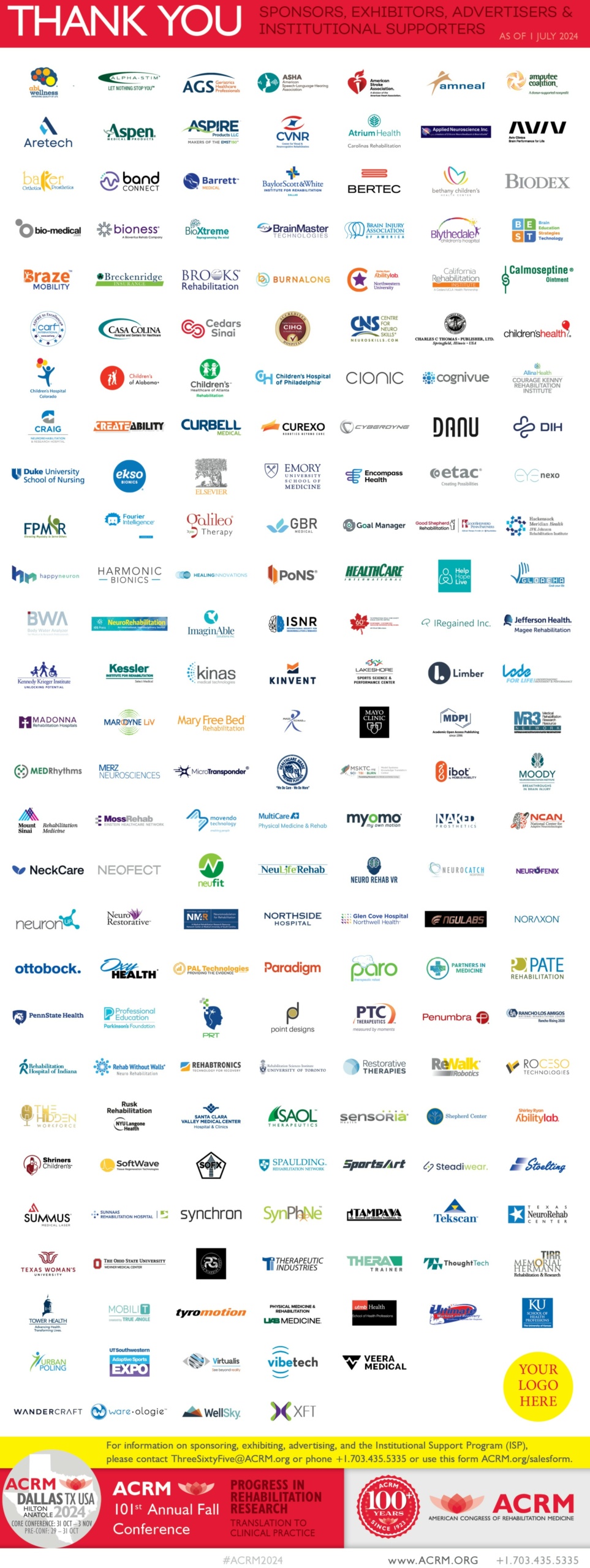INSTRUCTIONAL COURSE DETAIL
TUE, 27 OCT: 1:00 PM – 5:00 PM
FACULTY
Moderators:
Nicholas Evans, MHS, ACSM-CES
Lead Clinical Exercise Specialist, Beyond Therapy
Research Coordinator, Hulse Spinal Cord Injury Lab
Shepherd Center, Atlanta, GA
Deborah Backus, PT, PhD, FACRM
Director of Multiple Sclerosis Research
Shepherd Center, Atlanta, GA
Audrey L. Hicks, PhD
Professor and Associate Chair (Undergraduate Affairs), Department of Kinesiology
McMaster University, Hamilton, ON
Katie Feltman, Director of Publishing
American College of Sports Medicine, Indianapolis, IN
Panelists: Panelists will include both researchers doing exercise related research in people with SCI or MS, and clinicians who prescribe and deliver exercise interventions for people with SCI and MS.
DIAGNOSIS
Spinal Cord Injury, Neurodegenerative Disease, Clinical Practice
FOCUS
In-depth information communication/knowledge translation (course is intended primarily to impart information)
ABBREVIATED DESCRIPTION
This program will provide an overview of current exercise guidelines for people with physical disability, and then a discussion of the ways in which the guidelines are inadequate for subpopulations of people with SCI and MS. The remainder of the session will focus on preliminary efforts to develop a white paper related to exercise guidelines for people with SCI or MS, and identifying research questions for future studies. The course is designed to facilitate discussion and to set an agenda moving forward.
ABSTRACT BODY
There is an exciting increased interest in promoting exercise for people with physical disability due to neurological injury and disease, such as spinal cord injury (SCI) and multiple sclerosis (MS). In turn, there is also an increase in research focused on better understanding of the effects of exercise in people with SCI and MS. Based on this evolving evidence, as well as what is known in the able-bodied population, various guidelines have been developed to inform people with SCI and MS about how much, how often, and at what intensity they should exercise. However, in practice, it is often difficult to apply these guidelines. One issue is that some people with SCI or MS do not actually respond to exercise interventions in a similar fashion, and generally not like the non-injured person on whom some of the guidelines are predicated. This makes it difficult to prescribe a program based on maximal heart rate, for instance, when a person may not be able to achieve a maximal heart rate, or who has a blunted response to exercise. In addition, specifically in MS, the research has focused primarily on people who are still ambulating to some extent. Furthermore, if someone cannot achieve a maximal heart rate, then at what level should they exercise to receive health related benefit from that exercise? People with MS who are non-ambulatory not only do not respond the same way, but they also face barriers that make it difficult for them to access exercise options. Thus, while there is much that can be gleaned from exercise and physical activity guidelines, there remains some work to be done before clinicians can confidently design and prescribe interventions and programs for people with SCI or MS.
LEARNING OBJECTIVES
- Participants will be able to compare and contrast the basic exercise guidelines
- Participants will understand ways in which people with SCI and MS may respond to exercise and how the existing guidelines may be inadequate for prescribing exercise in these individuals.
- A detailed plan for a white paper and future meetings will be developed
Intended Audience
Clinicians and researchers who prescribe or use exercise interventions with people who have SCI or MS.
COURSE OUTLINE
Three talks will be provided to describe the American College of Sports (ACSM) guidelines, as well as those for SCI and MS.
A panel of clinicians and researchers in SCI and MS will describe either evidence based or real life clinical responses to exercise in people with SCI and MS.
A moderated discussion will ensue to identify where the limitations are in the existing guidelines, and potential research questions.
A plan will be developed for writing a white paper related to the points raised in this instructional course.
BIO SKETCHES
Nicholas Evans, MHS, ACSM-CES, Lead Clinical Exercise Specialist, Beyond Therapy, Research Coordinator, Hulse Spinal Cord Injury Lab, Shepherd Center, Atlanta, GA
Nick Evans received a B.Ed. degree in Exercise & Sports Science from the University of Georgia and a M.H.S. in Human Movement Studies from the Queensland University of Technology in Brisbane, Australia. For the past nine years, Nick has worked as a Clinical Exercise Specialist in the Beyond Therapy program at the Shepherd Center in Atlanta, GA. In addition to his clinical experience, Nick holds a research coordinator position in the Hulse Spinal Injury Lab and has been involved in a number of funded research studies investigating the effects of exercise and therapeutic interventions on neuro-rehabilitation and functional recovery following spinal cord injury. Currently, Nick is the principal investigator for a multi-site study investigating the cardiorespiratory and metabolic responses to exoskeleton-assisted walking using the Indego®. Nick has co-authored a number of publications on exercise training, neuro-rehabilitation strategies, and neurologic injuries. In addition, Nick is the chair of the ACRM SCI-ISIG Fitness and Wellness Task Force and is a committee member on the American College of Sports Medicine’s Committee on Certification and Registry Board. Nick has been instrumental in establishing a partnership between the ACRM and ACSM, with the goal of improving health and wellness in people with physical disability.
Deborah Backus, PT, PhD, FACRM, Director of Multiple Sclerosis Research
Shepherd Center, Atlanta, GA
Deborah Backus, PT, PhD is Director of Multiple Sclerosis (MS) Research at the Shepherd Center in Atlanta, Georgia. Dr. Backus received her B.S. in Physical Therapy in 1986, and her Ph.D. in neuroscience in 2004. She has combined her extensive experiences as a physical therapist, researcher and educator to focus on improving functional and health outcomes for people with neurological injury or disease, specifically related to people with multiple sclerosis (MS) and spinal cord injury (SCI). She currently serves as the Shepherd PI and collaborator on several projects. Dr. Backus is lead investigator on internally funded projects related to the health benefits of various interventions for improving health markers in people with MS, including massage, functional electrical stimulation cycling in people with multiple sclerosis, and an integrated exercise and wellness clinical program. She is the Shepherd Center lead investigator/trainer for the Rehabilitation Research Training Center on Secondary Health Conditions and SCI, and co-investigator on a Department of Defense funded research study Obesity/Overweight in Persons with Early and Chronic SCI: A Randomized, Multicenter, Controlled Lifestyle Intervention.
Dr. Backus’ research focus combined with her clinical experience has fueled a passion for facilitating the translation of evidence into clinical practice, including influencing clinicians in practice, payers for reimbursement of evidence based interventions, and policy makers related to health policy. Dr. Backus served on the Paralyzed Veterans Association Consortium of Spinal Cord Medicine for the development of various Clinical Practice Guidelines, and is a member of the ACRM Communications Committee where she contributes to the oversight of individual education pages for rehabilitation stakeholders. She has presented both nationally and internationally, and has also published related to this work. She has been recognized for her contributions to rehabilitation by the ACRM (American Congress of Rehabilitation Medicine) with the Deborah L. Wilkerson Early Career Award in Rehabilitation Research (2011), and the Academy of Spinal Cord injury Professionals with the Distinguished Clinical/Research Award (2010), and recently was named a Fellow of ACRM (2014).
Audrey L. Hicks, PhD, Professor and Associate Chair (Undergraduate Affairs), Department of Kinesiology, McMaster University, Hamilton, ON
Dr. Hicks is a Professor in the Department of Kinesiology at McMaster University in Hamilton, Ontario. After completing a Ph.D. in Medical Sciences (focused on neuromuscular physiology), her research for the past 25 years has focused primarily on exercise rehabilitation in special populations. The health-related benefits of regular physical activity in people with multiple sclerosis and spinal cord injured populations have been specific areas of focus, and she has received over 1 million dollars in research funding in the past 7 years specifically related to her work in this area. The development of evidence-based physical activity guidelines is another key area of interest; Dr. Hicks played a leadership role in the development and release of the Canadian Physical Activity Guidelines for Adults, Older Adults, and Children, as well as for 2 special populations: Adults with Spinal Cord Injury and Adults with Multiple Sclerosis. She is the founding Director of the MacWheelers exercise program, is the past President of the Canadian Society of Exercise Physiology and is the current Associate Chair (Undergraduate) in the Department of Kinesiology.
Katie Feltman, Director of Publishing, The American College of Sports Medicine, Indianapolis, IN
Katie Feltman is a 17-year veteran of the publishing and content industry. In her current role as the Director of Publishing at the American College of Sports Medicine, she manages the scholarly publishing portfolio made up of ACSM’s journals, books, and digital and multimedia products as well as works across the organization to develop content strategies. Katie is the primary contact with ACSM’s publishing partners and is responsible for the day-to-day publishing operations including content review processes, oversight of the business, marketing and advertising aspects of the books and journals, as well as more broad strategic planning initiatives including moving ACSM’s publishing portfolio into the digital realm. Katie has successfully created, developed and delivered products that provide high-quality content to meet a range of audience needs and is an expert at determining the unique needs of an audience, and delivering a high-quality product to meet those needs starting with ideation, moving through the development process, and launching the final product. Prior to joining ACSM, Katie spent 14 years in trade/reference publishing at Wiley Publishing managing a multi-million dollar book program in the well-known yellow and black For Dummies brand. Katie earned a degree in English Literature from Hanover College and calls Indianapolis, Indiana home where she spends as much time as she can on a bike and hiking with her dogs.
One full day of Instructional Courses $195 Three full days $395
WORLD PASS (from $595) is the best value if you attend just one instructional course and the CORE Conference. Pricing detail CLICK HERE![]()
*Although significant changes are not anticipated, all schedules, sessions, and presenters posted on this website are subject to change.










